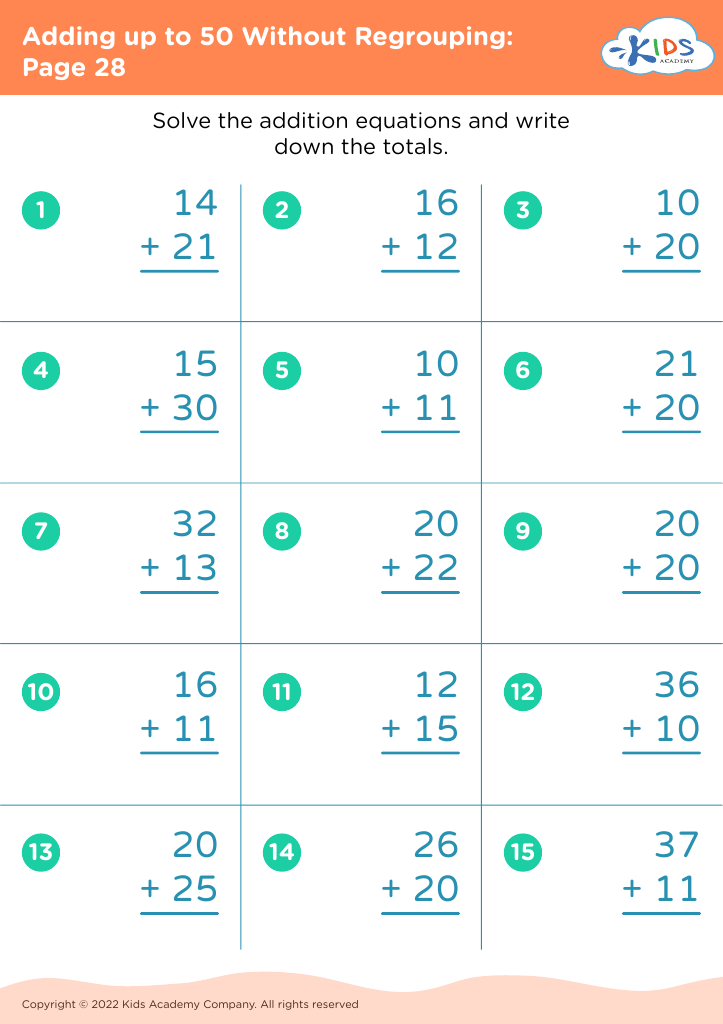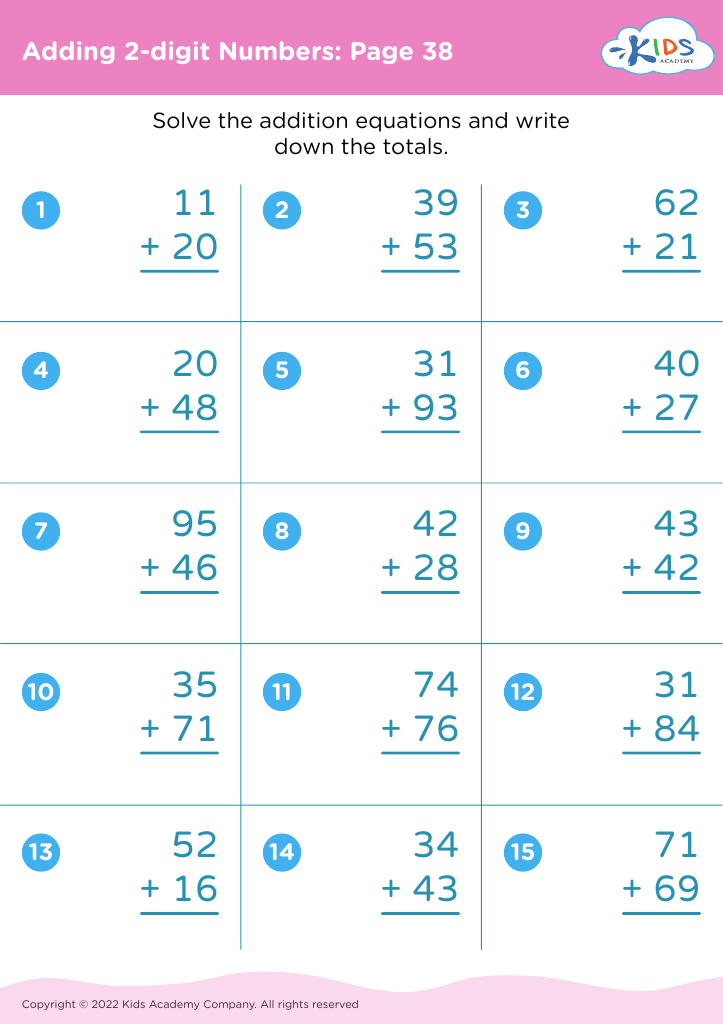Number Writing Practice Addition & Subtraction Worksheets for Ages 3-9
8 filtered results
-
From - To
Introduce your little learners to the foundational skills of math with our "Number Writing Practice Addition & Subtraction Worksheets" designed for ages 3-9. These engaging worksheets help children master number formation while reinforcing essential addition and subtraction concepts. Each worksheet features colorful illustrations and fun activities that keep kids motivated as they practice writing numbers and solving basic mathematics. Tailored to develop fine motor skills and boost confidence, our resources promote effective learning in a playful environment. Perfect for at-home learning or classroom use, these worksheets will make math practice enjoyable and interactive. Start your child’s math journey today!
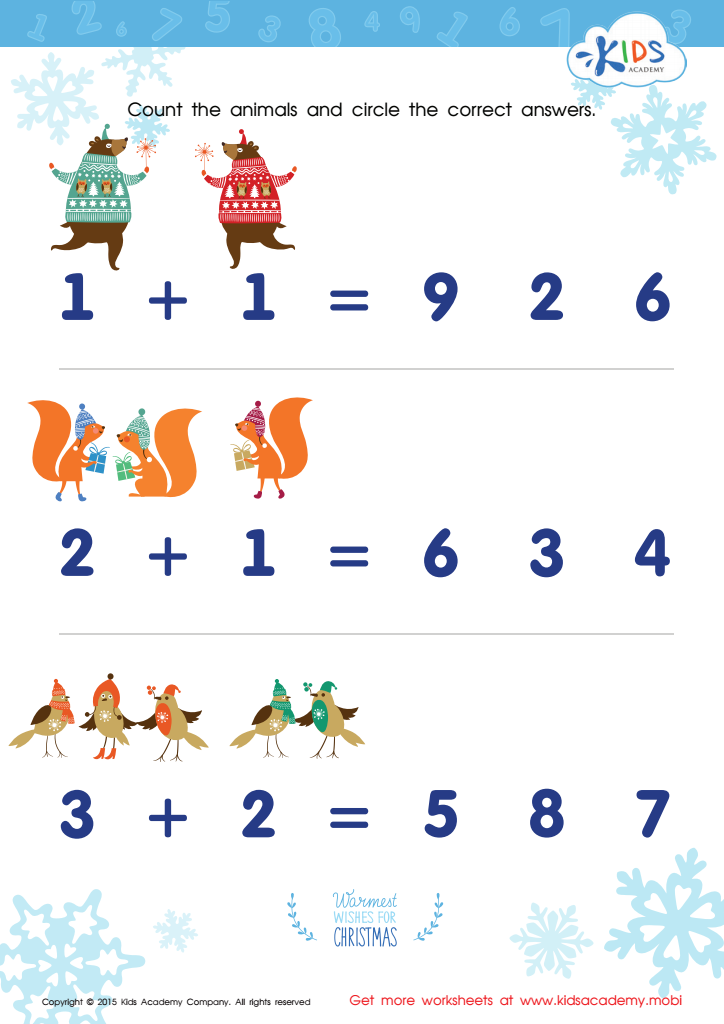

Count Funny Animals Worksheet
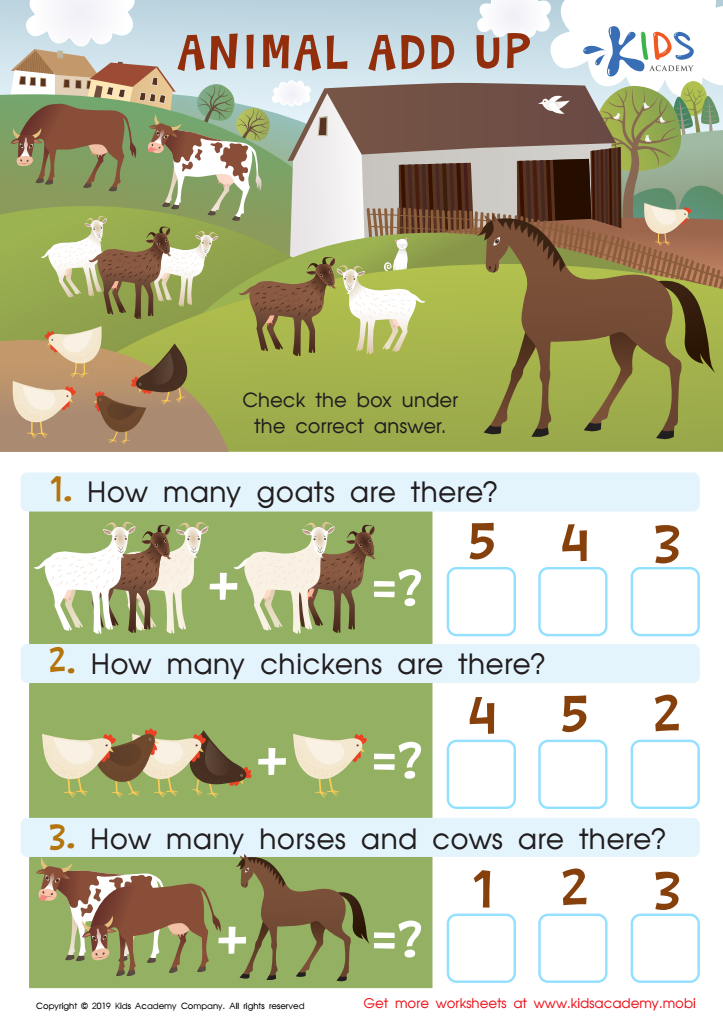

Animal Add Up Worksheet
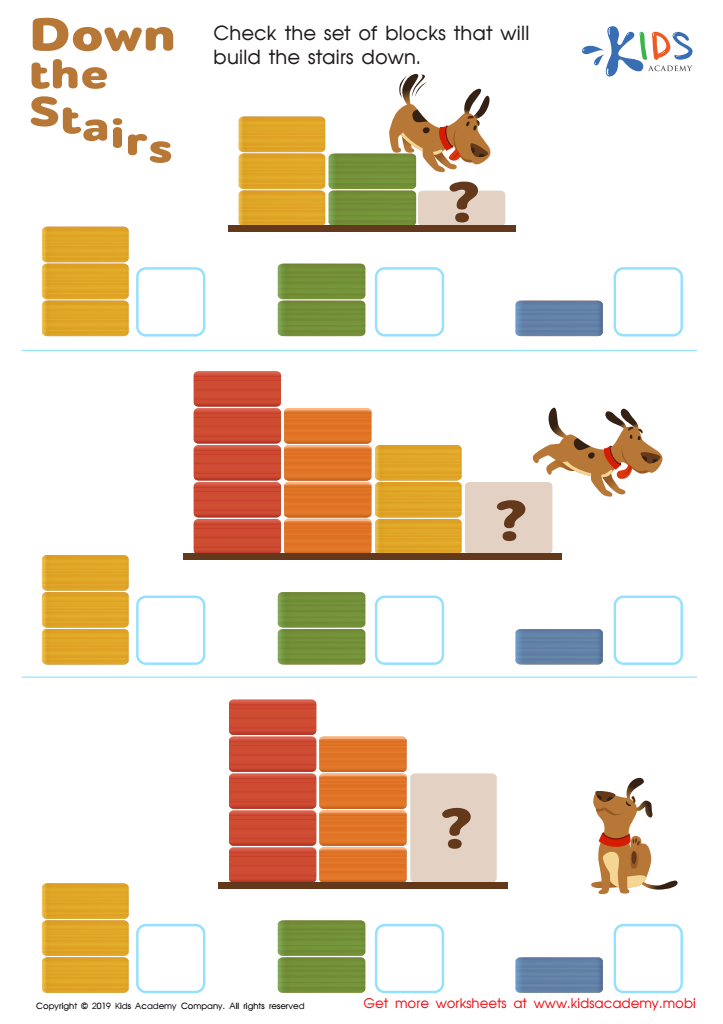

Down the Stairs Worksheet
Parents and teachers should prioritize number writing practice for addition and subtraction in children aged 3-9 as it forms the foundation for essential math skills. At this stage, children begin to develop their numerical understanding and write numbers, which are crucial for their cognitive development. Engaging children in early arithmetic helps them grasp concepts of quantity, sequencing, and relationships between numbers, fostering critical thinking.
Practicing addition and subtraction through writing also enhances fine motor skills, hand-eye coordination, and overall handwriting, crucial for later academic success. By learning to write numbers and equations clearly, children gain confidence in their abilities, which is vital during formative years.
Moreover, establishing a strong early mathematics foundation can positively impact future learning, as math concepts build upon one another. Integrating enjoyable, age-appropriate activities ensures that students remain engaged and enthusiastic about learning. This active approach helps demystify math, promoting a positive attitude that will benefit children throughout their educational journey.
Ultimately, number writing practice is an integral part of developing not just fundamental math skills, but also fostering a love for learning that can last a lifetime. By supporting this practice, parents and teachers as critical partners can help children succeed mathematically while boosting their self-esteem.
 Assign to My Students
Assign to My Students




